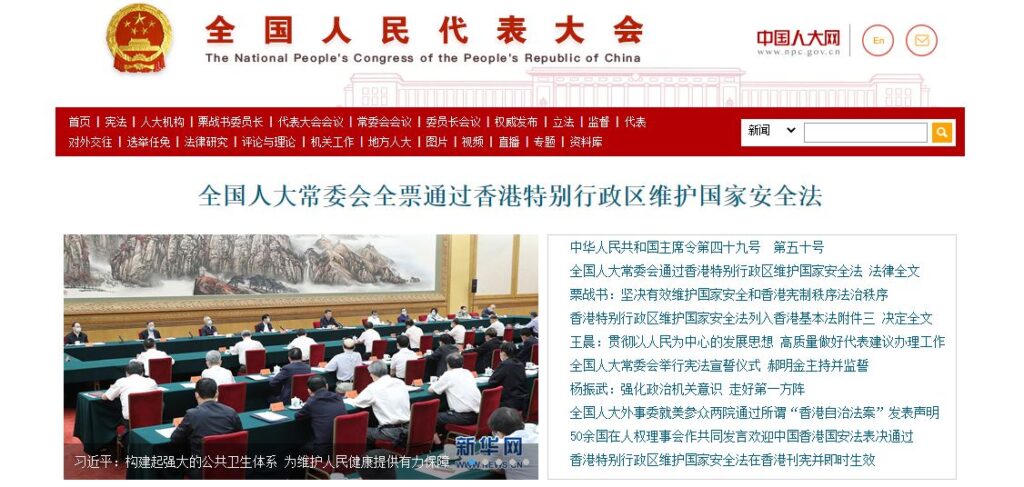China’s Draft Amendments to Criminal Law Include U.S. Economic Espionage Act Provision
China’s National People’s Congress has released the Criminal Law Amendment (Eleven) (Draft) for comments. Perhaps because of the U.S. Department of Justice’s (DOJ) increased enforcement of the Economic Espionage Act (EEA) targeting China as a beneficiary, the Chinese draft adds a separate provision for foreign-related trade secret theft. Specifically, Article 219 will have a new paragraph, “For stealing, spying, buying, or illegally providing trade secrets to foreign institutions, organizations, and personnel, it shall be punished with imprisonment or detention for not more than five years and a fine; if the circumstances are serious, they shall be imprisoned for more than five years with fines.”
As the DOJ explains, “the EEA contains two separate provisions that criminalize the theft or misappropriation of trade secrets. The first provision, codified at 18 U.S.C. § 1831, is directed towards foreign economic espionage and requires that the theft of the trade secret be done to benefit a foreign government, instrumentality or agent. The second provision makes criminal the more common commercial theft of trade secrets, regardless of who benefits. 18 U.S.C. § 1832.”
In a study by Andrew Chongseh Kim, in 34% of all DOJ prosecutions of EAA cases, the nation of the benefiting entity was China. However, this percentage has significantly increased since President Trump’s election. Per the DOJ, since 2018, 80% of prosecutions for economic espionage allege conduct that would benefit the Chinese state. This, combined with statements by the White House and others, may have encouraged China to draft a similar provision targeting foreign entities. For example, note that the draft of the criminal law potentially targets foreigners by not only criminalizing the theft of trade secrets (presumably by Chinese nationals) but also the purchase of stolen trade secrets (by foreign nationals).
Article 219 of the draft also adds that theft of trade secret can occur through fraud and electronic intrusion, not just “theft, lure, coercion or other improper means” in the current version.
The deadline to submit comments is August 16, 2020.

Back to All Resources

